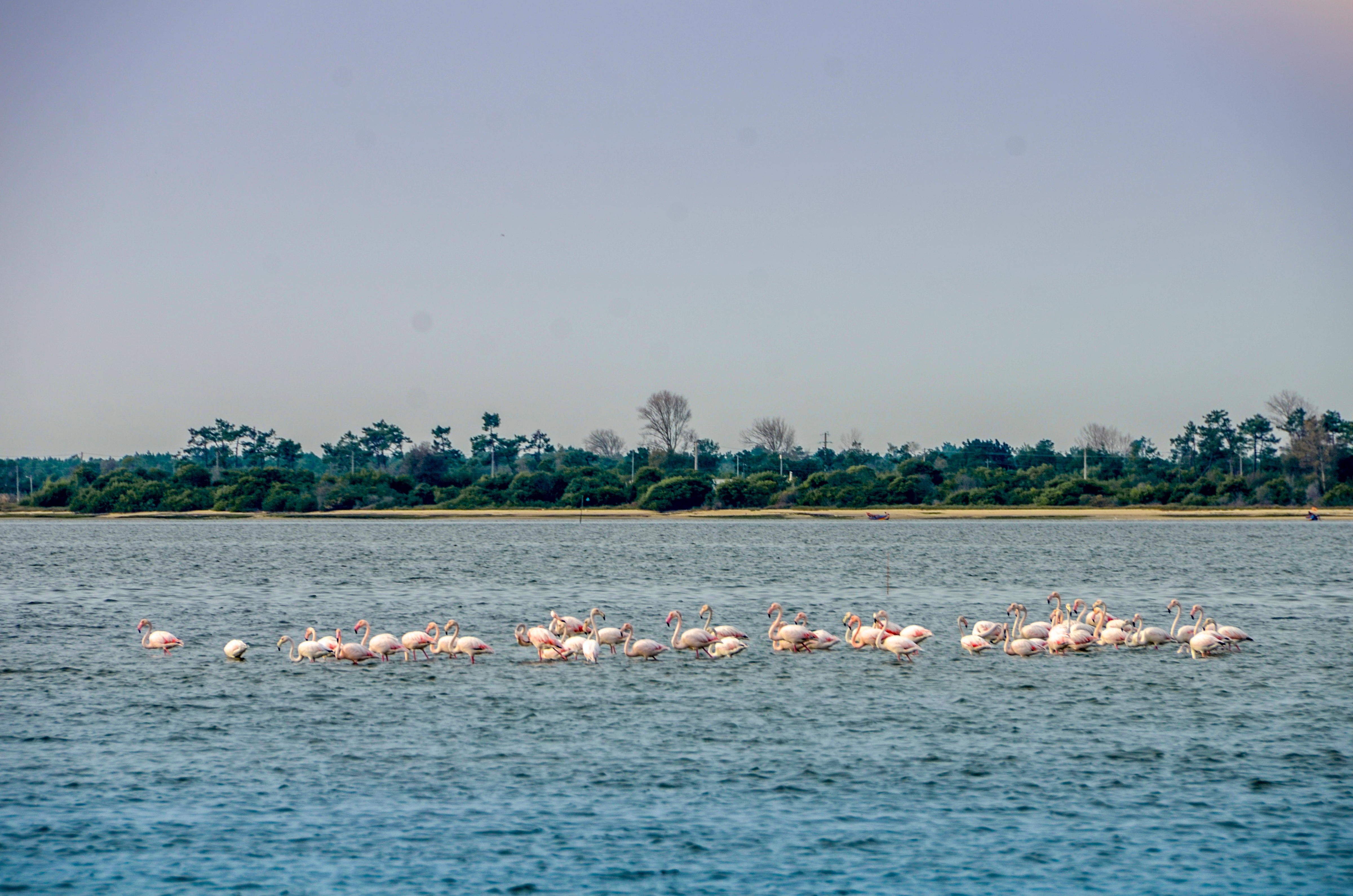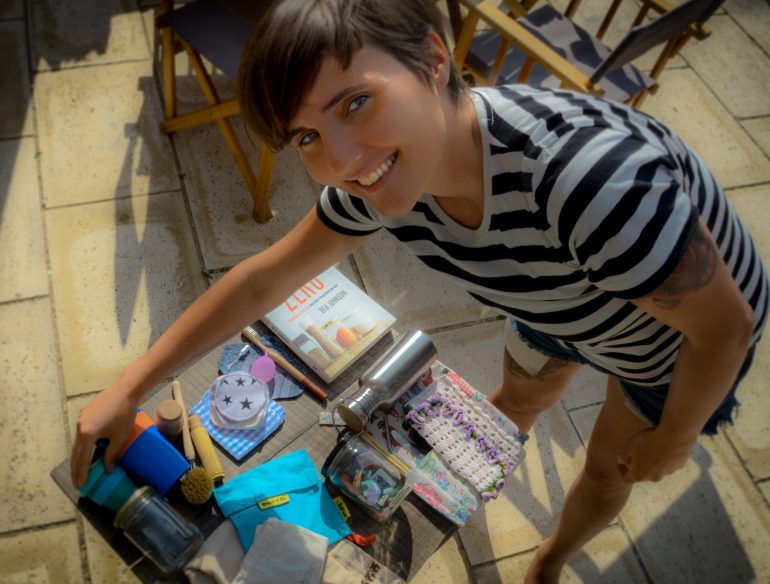I met Ana (33) on a beach clean up. After a burn-out and a career switch, she founded Zero Waste Portugal. She gives lectures & workshops about a sustainable lifestyle, is always ready to help, keeps her followers informed with a blog and doesn’t need garbage bags because she has no trash. How does she do that??
The second time I meet Ana is on a movie night about plastic. Just watching YouTube movies on a wall outside of a bar at the beach where Ana gives yoga classes. A man got offended by her Zero Waste lifestyle ( you organize your life as such not to have trash & you upcycle what you use). He thinks she is too radical and keeps on fulminating to her but she stays calm. “Sometimes you have to accept what you can’t change,” she tells when I ask her how she deals with that kind of reactions. As for my reaction to her: I want to know why there aren’t more people like her!
“We are always rushing to appointments & meetings so we miss a lot of essential information. By 2050 2 in 3 people will have no access to clean water & there will be more plastic than fish in the oceans. For most people, this is too abstract. I believe that’s because we are less connected with nature and more & more with a digital lifestyle. But also the government & scientific community lack responsibility to inform us. To give an example: I was shocked when I read that people in Florida are still motivated to invest in real estate in places that will be flooded in the near future.
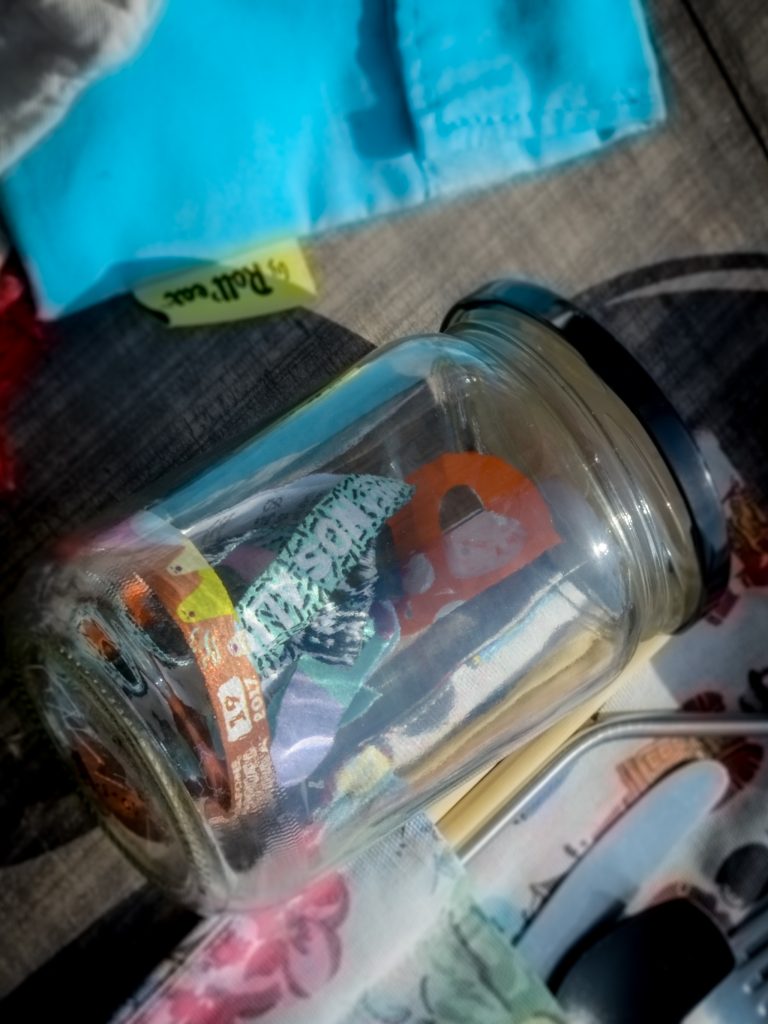
Shutting down
But we both agree that our communities are becoming more conscient and that in the last few years a lot of citizens created organizations to make their environment a better place to live. Activism is hot!
Still, those people are a minority. For most of us, from being aware to get actively involved is a huge step. How did Ana become an activist?
“I think I’ve always been like that, trying to evolve & educate myself. I believe that if you appreciate yourself and your environment, you start to feel that you are part of something bigger. Everything is connected; what you eat comes from nature, keeps your body healthy, influences your mind… This was already my intuition as a child and I went cleaning garbage in the gardens of my neighbourhood. But then I finished school, started working, had a career and lost this intuition. Until two years ago, when I read the book by Bea Johnson, how she runs a family without making trash. It got me inspired to create a zero waste community in Portugal.”
“Also, I had a burn-out last year that resulted in my body completely shutting down. I knew I was tired beyond words but I had big projects with deadlines and refused to go to the doctor because I knew what his answer would be… Until I got a complete black-out while driving my car on the Ponte Arrábida. Basta. I stayed home for two months. When you are sick like that, it puts your life into perspective. I was already giving some yoga classes and decided to focus more on this. I realized that the things that matter most, actually don’t ask that much effort & don’t cost that much as well.”
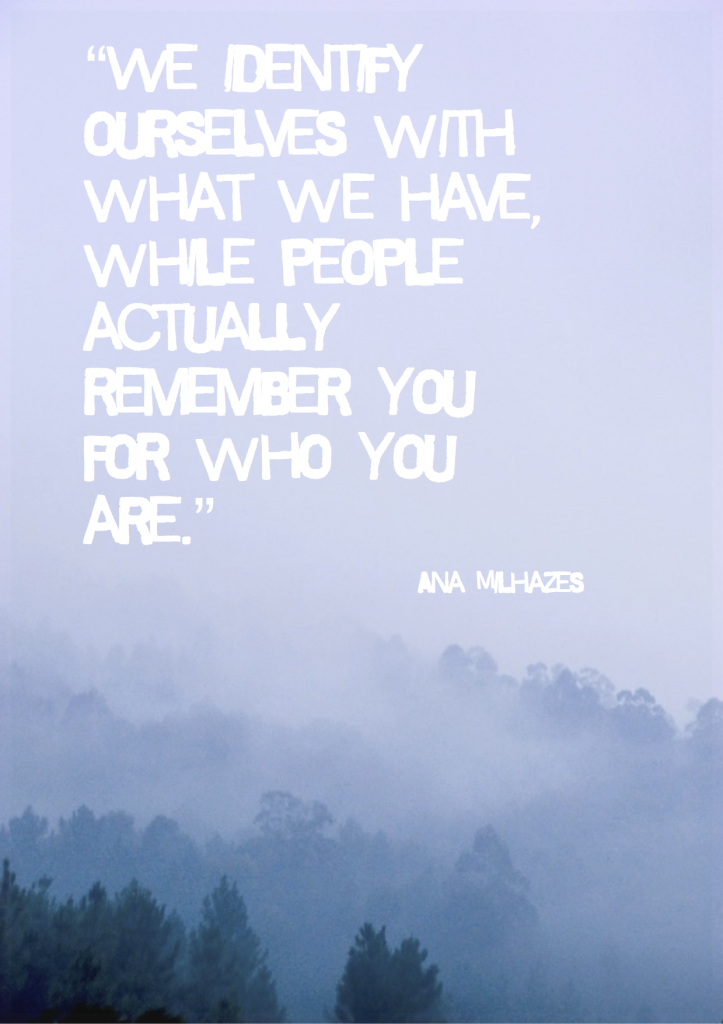
Shopping is compensating
Our conversation shifts from activism to more rooted causes. Or consequences ( everything is connected, ahaah!).
“We identify ourselves with what we have, while people actually remember you for who you are,” Ana says, “It’s important to know what makes you feel good and to do something with it, whether its children, nutrition, photography, science, animals, and so on. It is important to do what you really want & to be yourself. A friend of mine isn’t able to spend time on her own and that’s sad.”
“And yes, you need money to live, but because of my Zero Waste life, my priorities changed. I used to love shopping for clothes and stuff- I was addicted, but like I said; it doesn’t really add anything to what you really want in life or to what is important: health, freedom, hobby’s,… I believe shopping is filling an emptiness, a gap of something you really miss inside. Bea Johnson inspired me a lot to deal with this: she had to give up so much more, like weekly manicures, hairdressers, designer clothes,… and she had demanding kids. But she persevered and the bills dropped with 40 per cent. Plus, her life became much simpler. If you are happier, you need less. The rest is just compensation.”
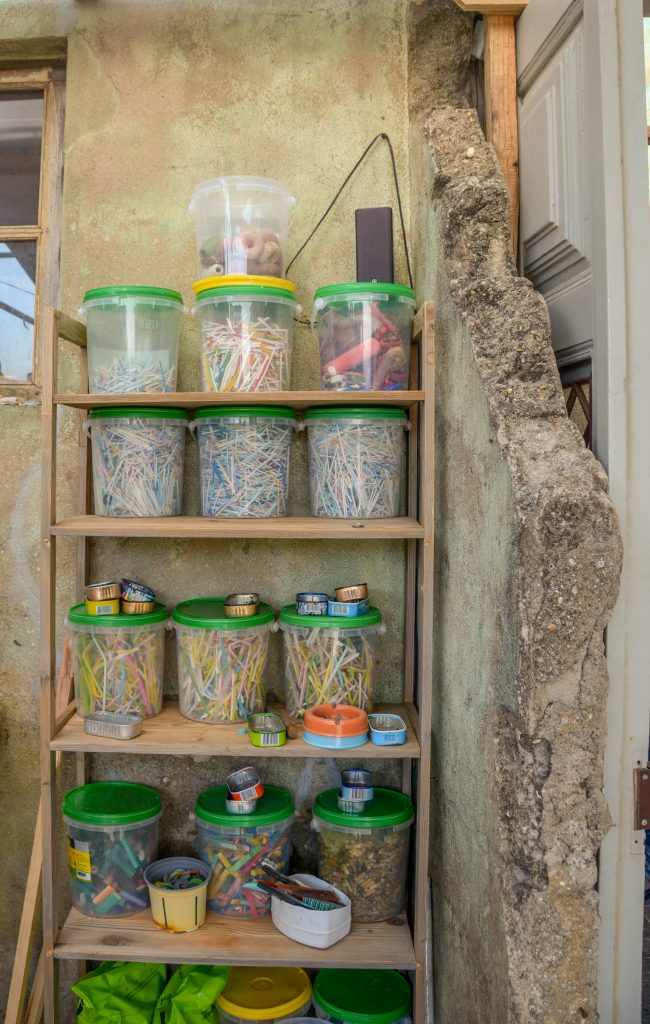
Any tips?
“During lectures, students from different environmental studies often ask me how I managed to create this community, this project. Well, I began with it because I saw there was a need for it. Find out what you want to do and just do it. Don’t try to be a perfectionist, keep it simple and take your time. For example, also non-vegetarians/vegans can accomplish a lot by avoiding eating meat once or twice a week. Everybody is different and that’s okay.
If you want to start with Zero Waste: start with something that is easy to change or give up. Check your garbage bin to see what you throw away the most and try to reduce that. Use what you have instead of replacing it with sustainable objects. I still have a lot of plastic in my house like an ugly, plastic comb I use for over twenty years now. If you need something, buy it second hand. Buy food in bulk to avoid plastic in your house.”
“Once you start with it, you’ll see there is no way back. Your priorities change quite fast because the less material, the cleaner you feel, the happier you become and the more you will identify yourself with things that really matter.”
Inspiration:
Ana’s blog: Ana Go Slowly
Start yourself: Zero Waste Home
The Minimalists, also check the docu about their journey on Netflix!
Practice yoga: find a GOOD teacher who can guide you.
